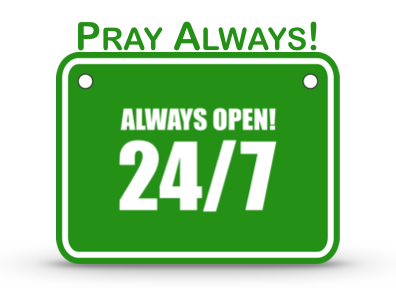Maybe our biggest question should be: Why would we ask for healing?
Does God promise to heal everyone? Why do we ask for healing? Do we put our motives before God? Are we afraid to ask for healing? What healing are we looking for? Are we intent on living out the will of God in our lives? Could a person seek healing contrary to the will of God?
Kent Hughes tells us, “This is the divine prescription, the only one in all of Scripture! The prescription contains clear direction to the sick first, and then to the elders.”
As we study this difficult text in James, I believe that we will see that James’ “divine prescription” is about much more than our physical well-being.
Message Title: The Prayer of Faith!
Message Text: James 5:13-20
- PDF LESSON 14 : The Prayer of Faith : James 5:13-20 : ffc : dave scott : 022816 STUDY SHEET ONE
- PDF LESSON 14 : The Prayer of Faith : James 5:13-20 : ffc : dave scott : 022816 STUDY SHEET TWO
——————————————————————————
- An account from Daniel Doriani, college professor, commentator, avowed Presbyterian …
During the autumn when I first studied James in earnest, a friend suffered a viral infection of the heart. While it was not a heart attack, it mimicked many of the symptoms of one. My friend felt listless; he looked gray and lifeless. One day at church, I told him that James 5 instructs elders to lay hands on the sick and to pray for their healing; I suggested that he call the elders for that very purpose. Two weeks later, he told me he wanted to proceed. No one in our church had done this before, so we did something very Presbyterian: we studied the matter another six weeks and hoped he didn’t die in the meantime.
At last, we appointed a night for prayer and the elders gathered. Our church’s pastor (I was a college professor at the time) summoned the elders. Before we prayed, he told us not to expect a dramatic physical healing, since God heals in many ways. I appreciated his motive, but there was no need to restrain my enthusiasm; my doubting heart was already skeptical enough. (To make matters worse, my one prior experience with prayers for healing came when I was an unbelieving teenager. My parents asked me to let them and certain friends pray over me for a then-chronic illness. I wanted no part of it, but was afraid to say so. The prayers had no effect at all.)
My friend knelt down in the middle of a circle of elders. We anointed him with oil, laid hands on him, and began to pray. Since I had started the process, I was appointed to offer the closing prayer.
As soon as we began to pray, I had an overwhelming sense that God was, at that moment, healing my friend. My arms felt what I can only describe as bolts of fire pulsing through them. As I grasped my friend’s shoulder, heat and energy burned in my hand. I felt that my one hand could lift all of his 230 pounds to the ceiling or push him through the floor if I wished.
I knew God was healing him. I wanted to shout, “We must stop praying that God will heal John and start praising God that he has healed him.” But I was too astonished, too unsure of my sensations, to say a word to anyone that night. For four days, I kept my experience to myself.
Four days later, after church, my friend beckoned to me with a wild grin, “Dan, watch this.” At once, he dashed up a flight of steps. I dashed after him and met him at the top. He smiled, “And I’m not even breathing hard.”
“I knew it,” I exclaimed, and told him what I had felt a few nights earlier. And he told me, “I knew it, too.”
Since that day, I have joined with elders to lay hands on the sick and pray for them. I have never again felt the fire. And while I occasionally feel a flood of warmth and emotion, I have learned that my feelings and God’s healing may have no connection. A small number have experienced immediate healing from serious illness. More have recovered gradually and under the care of physicians. Many have found spiritual healing—great peace and spiritual renewal in times of crisis and suffering, whether they recovered physically or not. And some have apparently gained no physical or spiritual benefit at all.
[Doriani, D. M. (2007). James. (R. D. Phillips, P. G. Ryken, & D. M. Doriani, Eds.) (pp. 189–190). Phillipsburg, NJ: P&R Publishing.]
——————————————————————————

